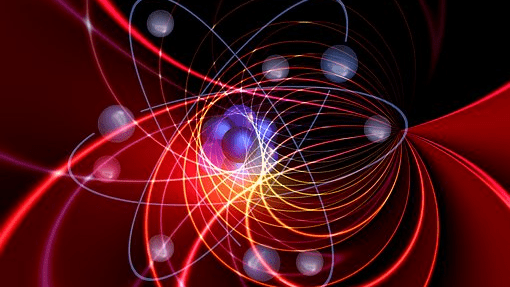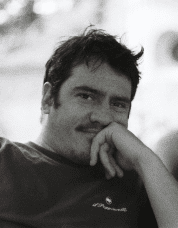
Gravity is one of the four fundamental interactions in physics. Einstein's General Theory of Relativity contains Newton's theory of gravity as a classical boundary case and describes gravity as the curvature of space-time. Experiments have confirmed the General Theory of Relativity with high accuracy, e.g. for the deflection of light rays and time measurements in GPS. It describes black holes, the Big Bang and gravitational waves.
Einsteinsche Feldgleichung
In numerical relativity, Einstein's field equations are solved on the computer.
Numerical solving these 10 coupled, highly nonlinear partial differential equations allows the investigation of
- physical properties of astrophysical systems such as the fusion of black holes or neutron stars
- mathematical properties of spacetimes such as geometry or horizons.
Numerical relativity complements analytical methods and perturbation theory, and allows the calculation of phenomena that cannot be investigated by other methods.
Of particular interest is the calculation of gravitational waves. While the methods of perturbation theory provide the waveforms in the phase of the spiralling in of binary black holes, it is possible in numerical relativity theory to determine waveforms of the fusion phase. These simulated gravitational wave signals are helpful in the detection of gravitational waves.
Solving Einstein's field equations on the computer is a big challenge. It is necessary to cover many different topics.
- Physics is the goal, but also essential to understand and interpret the results of numerical simulations.
- Simulations are performed on high-performance computers so that they can be completed within a reasonable time.
- Mathematics is needed to rewrite Einstein's field equations into a well-founded initial value problem.
- Numerics provides methods of high accuracy to discretize the Einstein equations and calculate solutions.
-
Prof. Dr. Bernd Brügmann
Learn moreProf. B. Brügmann
Image: B. BrügmannShort CV
- 1987. M.S. in Mathematics, Syracuse University, USA
- 1993. Ph.D. in Physis, Syracuse University, USA
- 1993 - 1995. MPI for Physics, München
- 1995 - 2002. MPI for Gravitational physics, Potsdam
- 2002 - 2004. Associate Professor, Penn State University, USA
- Since 2004 Professor, Professorchip for Gravitational theory, FSU Jena
-
Prof. Dr. Sebastiano Bernuzzi
Learn moreExternal linkS. Bernuzzi
Image: S. BernuzziShort CV
- 2009 PhD in Theoretischer Physik, Universität Parma, Italy
- 2009-2014 Postdoc at the TPI
- 2014-2015 Senior Postdoc at TAPIR/CaltechExternal link
- 2014-2017: Rita Levi Montalcini fellow, Universität Parma, Italy
- 2017: Habilitation
- 2017-2018 Associate Professor, Universität Parma, Italy
- 2017-2022 ERC-StG fellow
- Since 2018 Professor at the TPI
-
Felix Heinze
-
Diana Nitzschke
-
Mads Sørensen
-
Dr. Niclas Moldenhauer
-
Dr. Tim Dittrich
-
Dr. Marcus Bugner
-
Dr. Hannes Rütter
- Until 2018: Scientific staff member at the TPI, Dissertation
- Afterwards: Postdoc at the Max-Planck-Institute for Gravitational Physics (Albert-Einstein-Institute, Potsdam)
-
Dr. Reetika Dudi
- Until 2019: Scientific staff member at the TPI
- Afterwards: Postdoc at the Max-Planck-Institute for Gravitational Physics (Albert-Einstein-Institute, Potsdam)
-
Dr. Vivek Chaurasia
- Until 2020: Scientific staff member at the TPI
- Afterwards: Postdoc at Stockholm University
-
Dr. Sarah Renkhoff
-
Dr. Maximilian Kölsch
-
Dr. Daniela Cors
-
Dr Roxana Rosca Mead
-
Dr. Ondrej Zelenka
-
Dr. Francesco Maria Fabbri
-
Florian Atteneder


